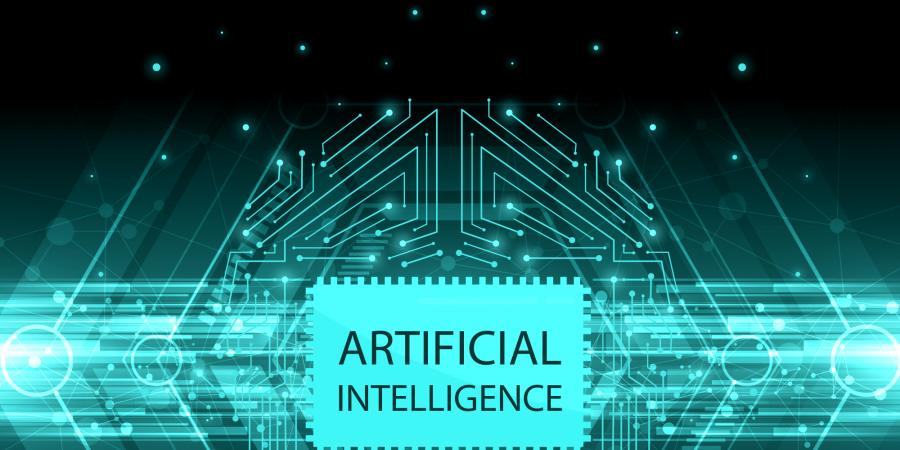

As artificial intelligence (AI) transforms from science fiction fantasy to reality, debates around its role in society grow louder. Is AI a boon, bringing unprecedented advances and conveniences? Or is it a potential bane, introducing unforeseen challenges and ethical dilemmas? The answer is complex, as AI holds promise and peril in almost equal measure, depending largely on how it’s implemented and controlled.
1. Unmatched Efficiency and Automation
One of the biggest advantages of AI is its ability to automate tasks, streamlining workflows and reducing human error. In industries like manufacturing, finance, and retail, AI-driven automation improves accuracy and speed. For example, in e-commerce, AI algorithms manage everything from inventory control to product recommendations. This automation enables businesses to save on costs and resources, focusing human efforts on creative and strategic endeavors.
2. Healthcare Transformation
AI in healthcare has unlocked life-saving innovations, ranging from personalized treatments to advanced diagnostic tools. Machine learning algorithms can quickly analyze medical images or genetic information, spotting patterns that might take doctors much longer to find. These tools aid in early diagnosis of diseases like cancer, offering personalized treatment plans based on genetic data. By enhancing medical efficiency and accuracy, AI holds promise to revolutionize healthcare accessibility and outcomes worldwide.
3. Personalized Learning and Education
AI has the potential to transform education, offering tailored learning experiences for students. AI-driven educational platforms can adjust content based on individual learning speeds and styles, making education more accessible and engaging. By identifying gaps in a student’s understanding and customizing lessons, AI helps both students and teachers achieve better results.
4. Environmental Impact and Sustainability
AI’s data-processing power also aids in combating climate change. Machine learning algorithms help researchers model and understand complex environmental data, predicting weather patterns, managing resources, and even optimizing energy usage. In agriculture, AI tools allow farmers to make data-driven decisions on crop rotation and water management, increasing productivity while minimizing environmental impact.
1. Job Displacement and Economic Disruption
While AI increases efficiency, it also raises concerns about job displacement. Automated systems can replace human labor, particularly in repetitive roles like customer service, transportation, and logistics. A World Economic Forum report predicts that AI-driven automation could disrupt over 85 million jobs globally by 2025. Although new jobs in tech and data are emerging, the transition may disproportionately affect lower-skilled workers, potentially widening economic inequality.
2. Privacy and Surveillance Issues
AI systems thrive on data, and this need for information often encroaches upon privacy. From facial recognition to targeted advertising, AI’s appetite for data raises concerns about surveillance and misuse. In some countries, AI-powered surveillance technologies are deployed on a massive scale, raising concerns about privacy and personal freedom. Without strict regulations, there is a risk that AI might erode individual privacy and lead to misuse by both corporations and governments.
3. Bias and Fairness
AI learns from data, and if this data is biased, the results will be biased as well. This has led to troubling cases in areas such as hiring, criminal justice, and lending, where AI systems have sometimes discriminated against specific demographic groups. Addressing these biases is a complex and ongoing challenge, as bias in AI is often difficult to detect and eliminate. Without rigorous oversight, AI can inadvertently perpetuate discrimination and inequality.
4. Cybersecurity Threats
As AI becomes integral to critical systems, it also becomes a target for cyber attacks. Cybercriminals can exploit AI systems or use AI to enhance the sophistication of their attacks. Deepfake technology, which uses AI to create realistic, but fake, audio and video, is a striking example. This technology has already been used for misinformation campaigns, posing threats to reputations, democracies, and personal privacy. Addressing these risks requires constant vigilance, research, and robust cybersecurity protocols.
Beyond practical challenges, AI introduces complex ethical questions. Should AI be used in warfare? Who should be accountable if an AI system makes a harmful decision? And how do we ensure that AI systems respect human rights? Autonomous weapons, for example, pose a dilemma, as they could reduce human casualties but also risk unchecked and potentially unaccountable power. As AI systems become more independent, determining who is responsible for their actions becomes increasingly difficult, underscoring the need for clear ethical frameworks and laws.
While AI has the potential for great harm, it also offers unparalleled opportunities to improve lives. Ensuring that AI serves humanity rather than undermines it requires a collaborative approach from governments, industries, and researchers. Here are a few strategies to strike this balance:
Develop Robust Regulations: Governments must establish regulations to protect privacy, mitigate bias, and set ethical standards for AI. This will ensure that AI is used responsibly and transparently.
Prioritize Ethical AI Research: Researchers and developers should focus on ethical AI, building systems that are fair, transparent, and accountable. Developing bias-free data and algorithms is essential for ethical and effective AI.
Promote AI Literacy: As AI increasingly impacts daily life, educating the public about AI’s benefits and risks becomes critical. A well-informed public can better navigate AI technologies, making responsible choices and advocating for beneficial policies.
Encourage Collaboration Across Sectors: Governments, tech companies, and researchers must work together to address the ethical, economic, and security challenges posed by AI. This collaboration can drive innovation in ways that prioritize human welfare.
AI is both a boon and a bane, embodying a powerful force that can shape the future for better or worse. The choice between these outcomes lies in our hands. By fostering responsible development, setting ethical guidelines, and involving all stakeholders, we can maximize AI’s potential benefits while minimizing its risks. AI’s impact on the future remains uncertain, but with informed guidance, it has the potential to become one of humanity’s most valuable tools, advancing society while respecting its values.
